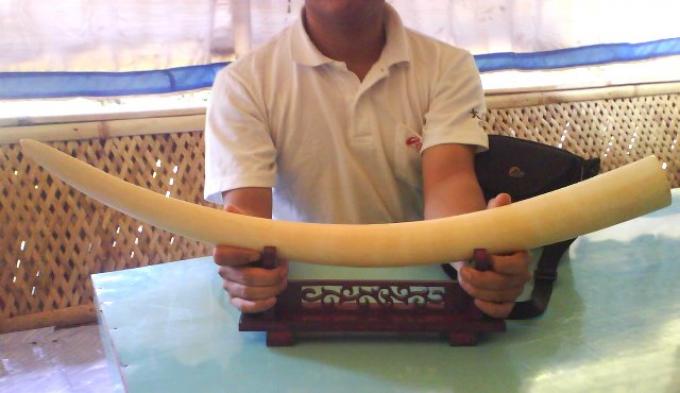Wildlife Poaching is Actually Happening and It’s Distressing
The unfoiled illegal trade of Sumatran Tiger ivory from Aceh to Pekanbaru, Riau, on Friday (20/5/2016) has proven that wildlife poaching is a real issue.
According to Osmantri from Wildlife Crime WWF Indonesia Central Sumatra, central Sumatra is a hotspot for wildlife poaching and trafficking. "Poaching still takes place in West Sumatra, Riau, and Jambi provinces."
The discovery confirms that Riau is a strategic crossroads for wildlife collectors and dealers, both seeking for live animals and body parts.
"Riau is one of major hubs for wildlife trade, comes second after Jakarta. WWF's conviction that Riau is a favorable place for dealers, is based on the evindence that there were wildlife products sold to Malaysia, including Sumatran Tiger skin and bones."
In addition to Malaysia, Taiwan and China have been the main destinations for those illegal products from Sumatra. This is apparent from the high demands and fantastic price. A pair of elephat ivories weighs 47 kilograms in total, for instance, worth IDR 20 million per kilogram.
"It worths almost IDR 1 billion! We can then add the Pangolins which are sold for its meat and scales that worth IDR 1,2 million per kilogram. A whole Sumatran Tiger skin's value could well reach IDr 50 million, while a beak of the Helmeted Hornbill could be sold for IDR 6-7 million per ounce," added Osmantri, also known as Abeng.
Chairman of PROFAUNA Indonesia, Rosek Nursahid, emphasized that wildlife poaching, particularly of elephants, is pertinent to land conversion into oil palm plantations. Rosek elaborated that when their natural habitats change into plantations, elephants are often regarded as pests.
"Most cases end with the elephants got killed and their ivory taken to be sold in black markets," said Rosek.
Law must be better enforced by arresting the dealers, but it is of greater importance to prevent wildlife poaching in their habitats. Insofar, wildlife criminals are free doing their misconducts, resulting in the ever-growing count of wild animals killed and sold. "Prevention is vital. If we only deal with the trade, the remaining animals are impossible to be saved."
Illegal trade of ivory, Rosek added, does not only harm the elephant's sustainable fitire, but is also atrocious because it always cost the elephants' lives. Education need to be given to communities, so that they would not keep wild animals as pets and insolently calling themselves "animal lovers." This behaviour is one of the main cause that drives wildlife to extinction.
"It's such a shame that there are people deeming themselves as animal lovers for their collection of animal body parts, while in fact they are aware that those goods were obtained through brutal killings."
Law Enforcement
Battling against wildlife trade would never work unless there is a strong commitment from the government and law authorities to constitute the law. The unruly implementation of the Law no.5/1990 concerning the Conservation of Living Natural Resources and Its Ecosystem, whose maximum penalty is only 5 years of prison, which is nowhere near causing a deterrent effect. This explains the recurring conduct of wildlife dealers.
"Bigger penalties must be given, and everybody must abide to this regulation," said Osmantri.
He added that the public plays an important role in combatting wildlife trade. There are many people out there who keep or collect wildlife products, which renders the high demands. Hence, raising their awareness should be made priority.
According to WWF Indonesia, there were 12 cases of wildlife trade in the last two years. Among the popular commodities are the elephant, tiger, and hornbill.
Source: http://www.mongabay.co.id/2016/05/26/perburuan-satwa-liar-dilindungi-itu-nyata-dan-meresahkan/
Photo: PROFAUNA

